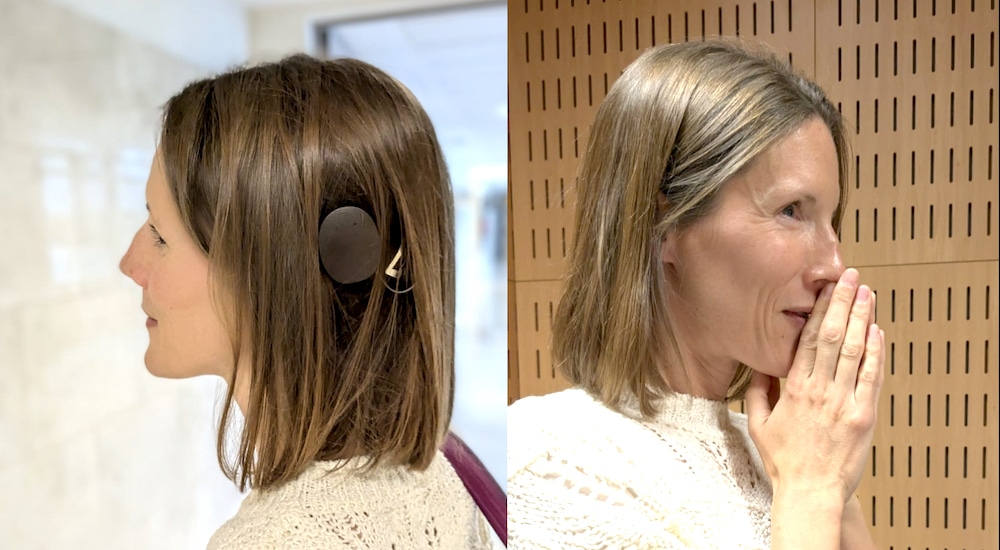Is well-being the perfect narrative?
Phonak talks the science involved in persuading people to buy product on the basis of improving not just hearing health, but general well-being. The Swiss manufacturer proposes a broader health model for easy use in clinical audiology practice.

By Audiology Worldnews editor-in-chief Peter Wix
Every hearing technology firm today will exploit the hearing instrument’s link with our broader well-being. Starkey, for example, has long claimed well-being is as much a benefit of its hearing aids as the sound it boasts for its devices, and the US firm even employs a doctor as a Chief Health Officer.
Phonak now insists that well-hearing is well-being is “more than just a tagline—it’s our way of life”.
In marketing hearing aids with such an emphasis on their extra-hearing benefits, producers face the task of renewing faith and interest in well-being as a tradable motif, one clouded over recent decades by its de rigueur use in health practices sold through disquieting shovel-loads of pseudoscience. Therefore, an appeal to all this label might mean requires, if not bravery, certainly a strong commitment to supporting their advertising with convincing evidence.
Phonak: hearing providers can be a catalyst for well-being
Phonak is committing heart and soul to the well-being association. It even convened a group of 17 scholars to help frame a strengthened definition of well-being into a hearing health shape, elevating the concept to a “position statement” as its 2022 product launches were presented this summer, reaching out to publications covering all kinds of health focuses.
Furthermore, Phonak’s science and technology experts see the galvanised concept of well-being as a lasting one, with technology providing the tools for much-needed attention in society on preventive rather than curative medicine, with hearing care providers playing a far bigger role in primary medical care than they currently do.
Stefan Launer, the brand’s Senior VP of Science and Technology, prefers to describe the well-being narrative for hearing devices as desirable rather than inevitable, seeing the time is right for the message to be intensified. In his view, it is even a debt to be paid to research scientists:
“Progress in science has advanced our understanding of the broader impact of hearing and hearing loss on health and quality of life. I think we owe this to some great scientists who asked these questions and drove this work forward over the last decade. Furthermore it is a general trend in society to become more aware of health and personal well being,” he maintains.
So, what does this research tell us about the importance of hearing function to our well-being?
Language and the social importance of hearing
We are animals, Stefan Launer reminds us. And he underlines that, for animals, acoustic communication is one of the key drivers of social interaction. Monitoring the environment, courtship and mate selection, warning signals, coordination of group behaviour, interaction between individuals, parental care of children…these are just a few of the many functions in which hearing plays a key role. And as a sense, it is robust: working day and night, around 360 degrees, lightning fast to switch on and off, and with spectacular distance control.
Aren’t these the skills we know well, those that are so much more potent in wild animals?
“Well, it’s a myth that humans hear poorer than most animals,” affirms Launer. “Humans are what I would call the decathletes of hearing. They have a good sense of hearing, they have broad bandwidth, they are very sensitive, and there are some disciplines where they are the best. And one is differential hearing; differentiating subtle differences in sounds is where humans are exceptionally good,” he affirms.
From this sonic discernment comes the factor that makes humans so outstanding: language. And for Launer, the finesse of language is a key factor behind our demands for extraordinary refinement in technology.
Thanks to the complex relationship between language, laughter, and musicality, we achieve the bonding necessary not just for our survival, but for surviving joyfully as a result of successful social bonding “round the campfire, round the dinner table, and verbalising feelings and ideas in modern social interaction”.
Stressing that “hearing impairment is not about hearing poorly; it is about understanding poorly,” this Phonak expert argues ardently that “language wouldn’t work without hearing, and that is something that is often forgotten.” And in modern humans, laughter depends to a great degree on language-shared humour. Even at the level of animals and children engaged in playfighting, the ability to interpret the subtleties of sounds made by the others involved enables one to distinguish intention, discern fun from the threat of violent aggression.
Music isn’t auditory cheesecake either. “Very recently, people started to look at and compare different musical styles across the world, and they realised that the lullaby is a lullaby is a lullaby wherever you go: in the jungles of the Amazon, in Australia, in Africa; the musical structure of certain songs is always the same.” Launer explains.
But hearing also allows us to be aware of what is going on around us. It never sleeps.
“Awareness is incredibly important because it makes you feel safe. Hearing impaired people often report feeling anxious because they don’t know what is going on around them,” the expert adds.
Hearing loss in the context of healthy living and healthy ageing
The onset of hearing loss on social and emotional health brings with it the degradation of quality of life, Launer underlines. “It’s as if the inner ear all of a sudden is talking in a foreign language to the brain,” he says.
This not only leads to social withdrawal, but also a significant reduction in identification of environmental sounds. Loneliness and fear increase.
Furthermore, ongoing research (here Launer specifically quotes work on hearing loss comorbidities by Dutch neuropsychologist Professor Sophia Kramer) suggests that the psychosocial impact of hearing impairment is a concern now compounded by associations with other chronic physical conditions. The Phonak experts appeals to recent studies suggesting that hearing impaired persons have a much higher risk of developing cognitive decline (dementia, Alzheimer’s), of falling later in life, of developing diabetes, and of developing cardiovascular disease. These associations stoke the need for a shift in approach from cure to prevention, he claims.
“I sometimes get upset when I hear people talk about our healthcare systems, because I think it’s entirely the wrong word. We don’t really have healthcare systems; we have a sickcare system, because once people turn sick we start to think about their health and we try to make them healthy again. But we don’t really think about their health; otherwise we would invest far more in preventive healthcare,” argues Launer, who also argues that economic indicators support the theory that ageing people with hearing loss have more serious health conditions than normal hearing people of the same age. “When we look at the sheer healthcare costs spent in the elderly population, we see that the population of hearing impaired people typically has higher healthcare spending than a population of normal hearing people of the same age; there is a pretty strong correlation.”
The benefits of hearing aid technology and professional care
From offering a constant connection online to functions that assure good sound quality, modern hearing aids are providing ways for hearing loss sufferers to keep their social lives active and maintain physical activity. But in pursuance of a more preventive role for hearing instruments and the professionals who fit them, it is their role in monitoring health that Phonak is heavily underscoring.
“The ear is turning into a hot-spot for vital sign monitoring; it’s a very good place to measure step counts, heart rate, body temperature. So, by integrating sensors, we can basically also offer new technology to help monitor the health condition of a person,” Launer explains, spiritedly pointing out that when a person shows signs of hearing difficulties, they may not yet have developed other medical conditions.
A role for professionals in prevention
The timing involved in reaching people before chronic conditions worsen is where Launer sees a role in the future for hearing care, arguing that professionals should become “far more active”. “We have access to these people, we see them in our private practices and clinics, so we could talk about hearing care, we could talk about how hearing care is important for becoming more socially active, more physically active, and to counsel in general about health,” he continues.
“We have to talk about this differently,” he demands. “We have lots of evidence to show that hearing instruments contribute broadly to improving quality of life,” pointing in particular to the benefits for fatigue and effort, and lamenting the customary emphasis in questioning patients on speech understanding or TV capture. “We never ask ‘what’s the price you have to pay? How much effort do you have to put in? How long can you be in a conversation?’”
But what are the limits to any such expansion of the professional’s role? How can the audiologist feel comfortable with the possibilities opened by technology without this becoming a burden added to an already pressing daily schedule?
“I think this is a question that very much depends on local constraints – the scope of practice and healthcare systems in different countries,” argues Launer. “In general, I think audiologists should at least be exposed to other health topics in their education, especially those closely correlated to hearing loss. So, audiologists could counsel and potentially contribute to screening for other health risks – specifically those that are close to their scope of practice (e.g. balance/falls risk, or cognitive decline, although that is a tricky one),” he expands.
“However, audiologists might counsel about the risk of cardiovascular disease and diabetes, both comorbidities, but should not actively pursue any screening on either topic. Here, audiologists could follow WHO guidelines and discuss the importance of physical activity on maintaining health, and then offer a hearing solution that supports that by sensors and apps. In general, I think audiologists should build a closer collaboration with various physician specialties to refer people at risk for more detailed screenings or assessments.”
Source: Audio Infos UK issue 150 September-October



